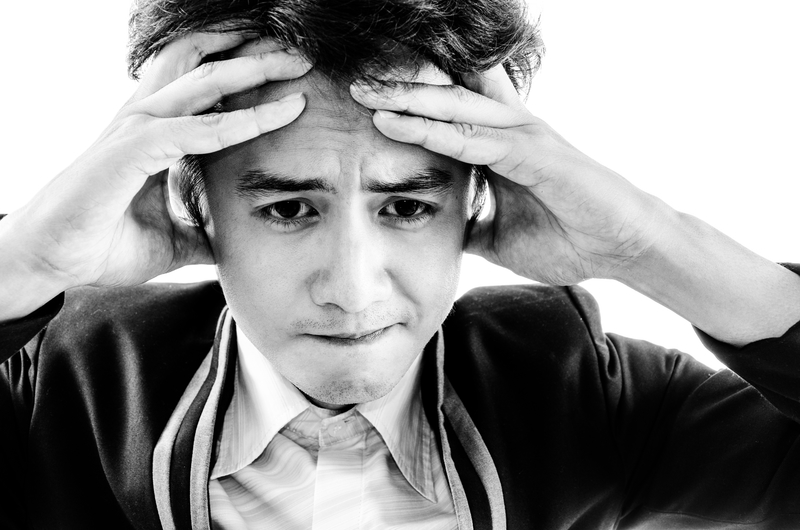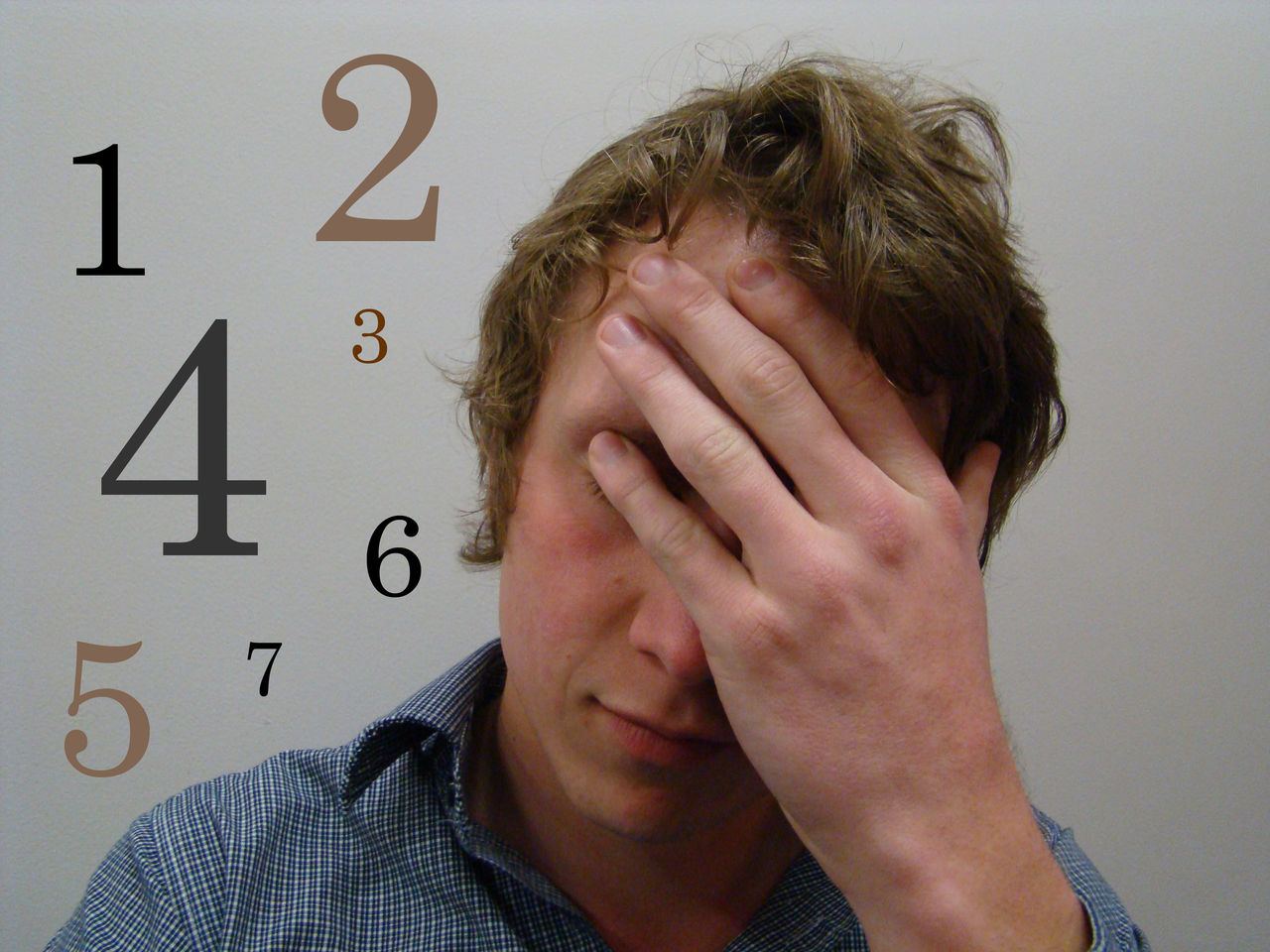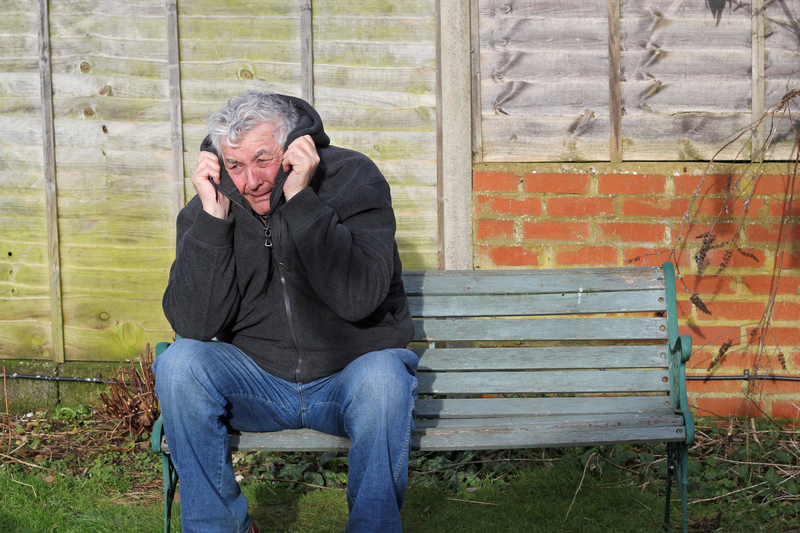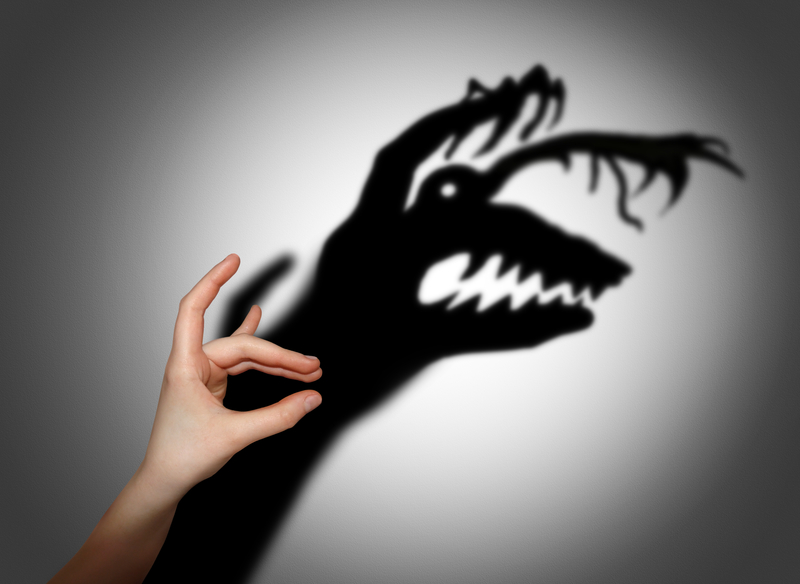10 Signs Of Anxiety Disorder
Anxiety is something nearly everyone will deal with at some point in their lives. Stressful events like job interviews, public speaking, or difficult life experiences like financial difficulties and relationship issues can cause nervousness and anxiety. For some, dealing with anxiety is a constant battle, at levels almost impossible to manage. It is not always clear whether a person suffers from anxiety disorder as there are many symptoms, not all of which manifest in every case. Any of the following symptoms, if experienced on a regular basis, may indicate an anxiety disorder.
Sleep Problems

There are many reasons why someone might have trouble falling asleep or remaining asleep. Causes of restless sleep or insomnia include both physical and psychological reasons. Momentous occasions or stressful circumstances, such as job interview or a milestone event, can also result in a restless or disturbed sleep. However, if a person finds themselves consistently having trouble falling asleep, this may be a sign of an anxiety disorder. Often, this sleeplessness will take the form of lying awake over-thinking specific issues, like money or relationship problems, but it is also possible that the anxiety will take no specific form. One might suspect an anxiety disorder if he or she wakes up with a racing mind, unable to calm down on a consistent basis.
Muscle Tension

An anxiety disorder can lead to constant or near-constant muscle tension. This will take the form of such behaviors as balling one’s fists up, clenching one’s jaw, or flexing or tensing muscles throughout the body. Many times, this muscle tension will be so pervasive that sufferers will even stop noticing that they are doing it, so used to the routine muscle tension they become.
It is possible to minimize muscle tension through regular exercise, but this path is sometimes problematic if the underlying anxiety disorder does not get treatment. If exercise is keeping muscle tension at bay, sudden unforeseen events or workout-related injuries can occur. If this happens, the muscle tension will return, adding more stress and irritation to the sufferer’s life.
Chronic Indigestion

While anxiety disorder has its root in the brain and mental processes, the symptoms appear throughout the body. One such symptom is chronic indigestion, which would include gas, cramping, stomach aches, bloating, and constipation or diarrhea. This indigestion could be labeled as irritable bowel syndrome or IBS. IBS does not always come linked with or caused by an anxiety disorder. However, they frequently do appear together, and often end up making each other worse. Our digestive tracks are extremely sensitive when it comes to any psychological stress, and dealing with persistent chronic digestion problems can amplify social discomfort and make a person feel more anxiety.
Stage Fright

It is not uncommon for anyone to deal with a bit of nervousness before speaking or performing in front of a large group. So getting slightly nervous before such an event is not a sign of anxiety disorder in itself. However, if the feeling of fear is so powerful that any amount of practicing or coaching beforehand is not able to bring it to manageable levels, it is possible that a person is suffering from anxiety disorder. People suffering from social anxiety often spend days or even weeks worrying and stressing about a future public situation. Even after the fact, they will frequently dwell on it for a long time, thinking about how their performance may have been viewed or judged.
Self-Doubt

Almost all anxiety disorders feature persistent second-guessing and self-doubt. These doubts take the form of insecurities or worries that have some basis in fact, and are very important to the person’s core self-concept and how they see themselves as people. Of course, almost everyone deals with self-doubt on some level.
For a person suffering from anxiety disorder, this doubt is a constant, pervasive fact of life, causing dread and soul-searching that the sufferer cannot fully shake. Frequently, the self-doubt can become almost an obsession, leading the person to question things that to an outside observer would seem to be simple and clear.
Self-Consciousness

People suffering from anxiety disorder often find themselves feeling uncomfortable in social situations or situations where they need to interact with other people. Anything from a conversation with a casual acquaintance or a dinner party or gathering of co-workers could be an anxiety triggering event. In situations like these, social anxiety can lead to an inordinate self-focus.
People with anxiety disorder often feel as though everyone is paying particular attention to them, judging them for how they look and what they are saying, especially in a negative or critical manner. This belief can lead to trembling, sweating or blushing, as well as difficulty making conversation. These symptoms tend to further a negative feedback loop, as the person will be aware of how the symptoms make them look.
Excessive Worry

The question involved with judging excessive worry is: How much worry is too much worry? After all, nearly everyone worries about things in their lives to some extent. In some cases, a person may have an anxiety disorder if he or she has persistent worried thoughts for most days each week for a period of six or more months. If a person is continually beset by worries and stress, it is very likely that an anxiety disorder is a cause.
A large factor in whether excessive worry is coming from an anxiety disorder is how disruptive the worry is in a sufferer’s daily life. If the worry is causing an inability to function in daily life, it is reaching into the territory of an anxiety disorder.
Compulsive Behaviors

Obsessive-compulsive disorder (or OCD) is a disorder very closely linked with anxiety. With OCD, a person’s obsessive and intrusive thoughts rise to the level where they dictate behavior. This behavior can be mental or physical, with the most stereotypical being activities such as hand-washing or meticulously straightening items over and over. When it reaches the level of full OCD, a person ends up developing patterns of behaviors known as rituals, and these rituals tend to form a restrictive framework for that person’s life. People with OCD become anxious if they are not able to complete their rituals, and the result of a disruption can often be a kind of mental paralysis or panic.
Panic

A panic attack is a crippling and debilitating event. Imagine being gripped by a sudden and overwhelming fear and a feeling of helplessness, along with physical symptoms such as a racing heart, issues with breathing, sweating and trembling, numb or tingling hands, stomach and chest pain, and flashes of either heat or coldness.
Simply having a panic attack does not mean that a person has an anxiety disorder. However, anyone who has had recurring panic attacks is very likely suffering from some form of anxiety disorder. Panic attacks are so awful and stressful that people suffering from them tend to live their lives fearing and anticipating the next panic attack, and even develop negative associations with locations where attacks have happened.
Irrational Fears

In some cases, anxiety disorder does not manifest as general worry, nervousness or fear. Instead, it becomes associated with a specific thing. Irrational fears could be a fear of dogs, flying, crowds, or any debilitating fear of a typically non-fearful thing. If the level of fear reaches the point where it is out of balance with any actual risk or danger, it is likely that the person is suffering from an anxiety disorder. Many disorders of this kind are rooted in a person’s history, like a past trauma that is causing the fear. But that is not always the case, and sometimes a person will not know that he or she has an irrational fear until a confronting situation where the object of that fear is exposed and recognized as irrational.
